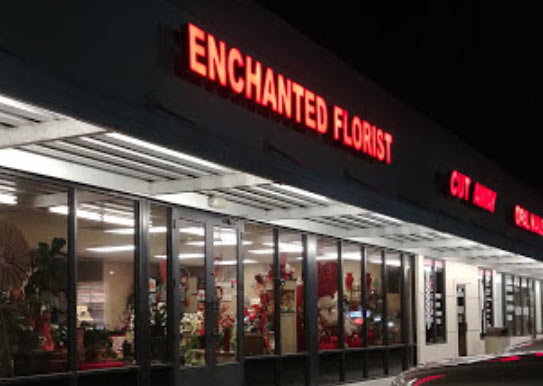Top 8 Toxic Houseplants for Cats and Dogs
Posted by Enchanted Florist on 2nd Nov 2015
Many people who love pets also love houseplants. If you're one of those who enjoy being surrounded by allliving things, for the health of your four-footed friends it's important not to grow toxic plants where your pets might reach them.
In fact, it may be best to avoid the following eight plants that are toxic to cats and dogs:
English ivy (Hedera helix)
The leaves of these popular houseplants contain several toxins. The most likely effects of its ingestion are large blisters that appear in the mouth and throat almost immediately. If a pet manages to swallow any of it, vomiting and diarrhea will soon follow as a result of similar irritation to the intestinal tract.
Azalea (Rhododendron species)
All parts of this plant, especially the foliage, are poisonous. They contain a neurotoxin known as grayanotoxin which affects the heart and respiratory systems, along with other organs. Ingesting less than 2 ounces can make a 60# dog extremely ill; it would take much less to similarly affect a cat or small dog.
Azaleas and rhododendrons are popular garden plants in many areas of the country; don't forget to protect your pets while they're outside, too.
Chrysanthemum or mum (Chrysanthemum species)
Lactones, pyrethrins, and sesquiterpene are all toxins found in chrysanthemums. They cause excess salivation, nausea, vomiting. diarrhea, and loss of coordination. Mums are potentially lethal to both cats and dogs, but are particularly dangerous to cats. Be aware that they're also popular flowers in bouquets and may enter your pet's home in that way.
Kalanchoe (all species)
Some species of kalanchoe contain a cardiac glycoside which can cause a potentially fatal abnormal heart rhythm. The most likely plant to cause this problem is mother-of-thousands (Kalanchoe daigremontiana) because of the confirmed presence of this toxin and its habit of shedding its babies everywhere. However, all species of kalanchoe can cause vomiting and diarrhea, leading to severe dehydration.
Pothos (both Scindapsus and Epipremnum species)
Plants belonging to the Araceae family, such as pothos, contain calcium oxalate. Chewing or ingesting these insoluble, needle-like crystals can result in intense burning and significant mechanical irritation of the mouth, tongue, throat, and gastrointestinal tract, along with potentially lethal swelling.
Peace lily (Spathiphylum)
Another member of the Araceae family, peace lilies contain the same dangerous crystals, and produce the same symptoms, as pothos above.
Schefflera (all species)
Like pothos and peace lilies, this is another member of the Araceae family with the same dangers.
Other popular houseplants that produce similar symptoms include philodendron, dieffenbachia, and sansevieria (snakeplant).
Always know the botanical name, as well as the common name, of any plant you grow. Often, both safe and deadly plants will share the same common name, but each botanical name is unique to that particular plant. In case of an emergency, a quick and correct identification may mean the difference between life and death for your pet. Contact us for help choosing houseplants that you can enjoy and your pets can live with safely.

